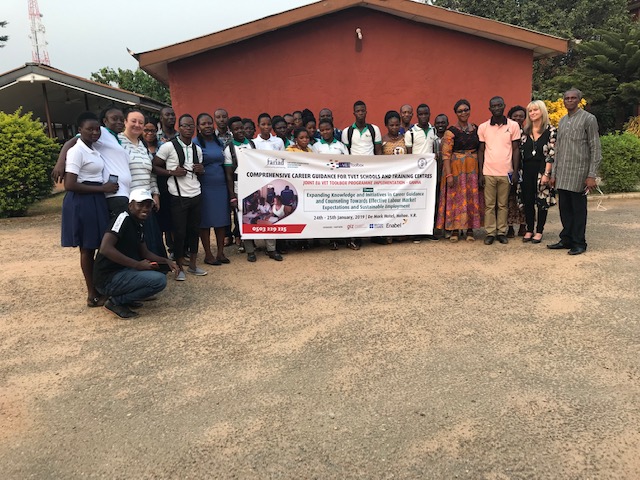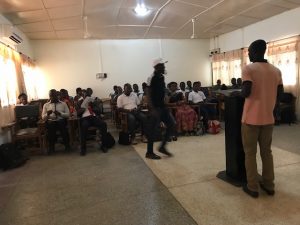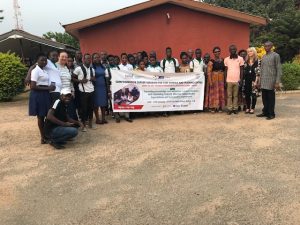GHANA: On 6th February 2019, UK Skills Federation (UKSF) member, People1st International attended a skills event hosted by FARIAD.
Experts and colleagues from People1st International and GIZ met with the vocational training institutes in the Volta region and their teachers and students, to hear about and discuss the great work they are doing in agriculture, tourism, fashion, beauty and healthcare studies. It was also an opportunity to hear about the very real challenges they face because of the lack of resources.
People1st are aiming to help trainers and students build and leverage their expertise in curriculum development and career guidance so that they can develop strong and sustainable public-private partnerships.
SOLUTIONS
During our scoping visit to Ghana, through research and consultation we undertook the analysis of current curricula and the requirements of the labour market. The guiding principles were how to add value to the existing system and support the delivery of ‘fit for purpose’ provision within the vision for competency-based training set by the Government in Ghana.
Our research and consultation process involved the following activities:
- Team meeting with Public and private partners in Ghana
- Analysis of documents provided by training provider FARIAD
- Researching curricula development/associated regulations
- Designing a workshop for capacity building
- Consulting on key occupations
- Selecting methodology for draft functional specification including knowledge, skills and behaviours
- Preparing criteria for teachers
- Interviews with key employers on skills need and what should be in the competency curriculum
- Interviews with teachers, curricula authors etc. from FARIAD and public training provider NVTI
IMPACT
- 22 participants received training in curriculum design from 9 training institutions. All of the participants were given the opportunity to receive group coaching from their organisations following the training
- 100% of the beneficiaries indicated satisfaction with the training intervention and are actively developing competency based training
- 100% of the delegates indicated they would be able to use what they learnt in the training intervention and are actively developing competency based training
- An ongoing review and evaluation will measure the number of disadvantaged and vulnerable VET students reached as there is an expectation that the new competency based training programmes will result in train- ing being delivered in rural hard to reach communities that include women and disadvantaged youth.
See more in the case study located here



